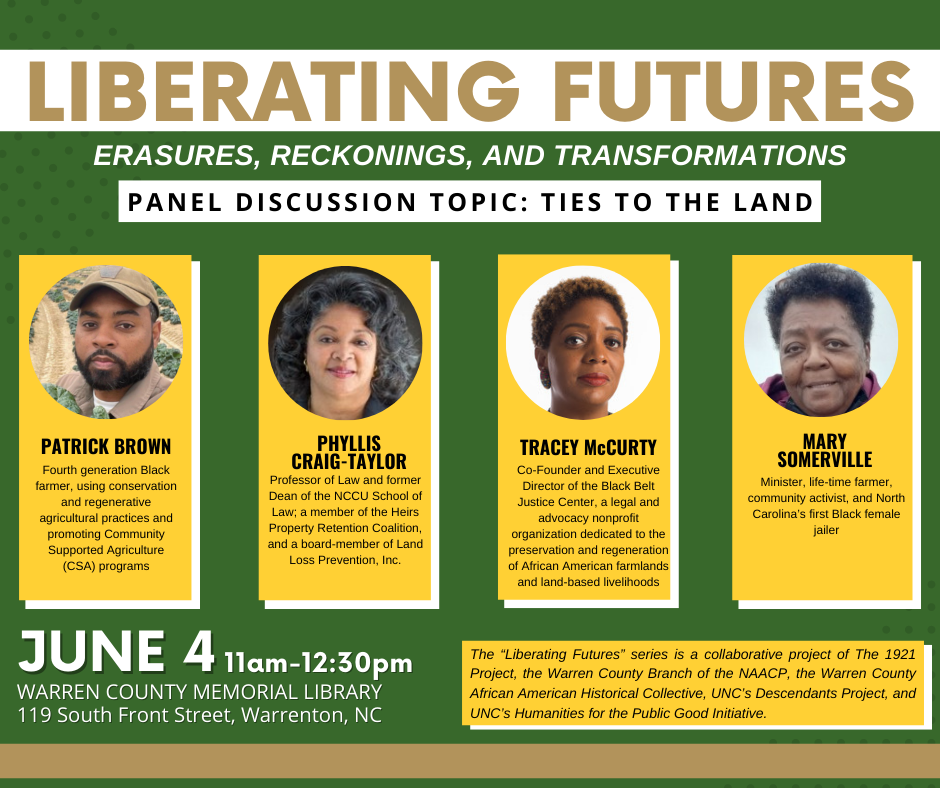Community
‘Liberating Futures’ Series Continues with Discussion on Sharecropping and Black Land Ownership
The fourth panel in the “Liberating Futures: Erasures, Reckonings, and Transformations” series of public discussions
The fourth panel in the “Liberating Futures: Erasures, Reckonings, and Transformations” series of public discussions continues on Saturday, June 4 at 11am in the Warren County Memorial Library community room.

The “Ties to the Land: Sharecropping, Black Land Ownership, and Black Land Loss” panel brings together a group of policy analysts, activists, attorneys, and farmers to reflect on the systems that have simultaneously connected Black farm families with the land and challenged their ability to own the fields in which they’ve labored for so many generations.
Panelists will discuss the legacy of sharecropping and Jim Crow farm practices, address the organized challenges being mounted against government policies that discourage and decimate Black farm ownership, review the relationship between land ownership and generational wealth, and offer strategies for reclaiming a future for Black farming.
PANELISTS:
• Patrick Brown – Fourth generation Black farmer, using conservation and regenerative agricultural practices and promoting Community Supported Agriculture (CSA) programs
• Phyllis Craig-Taylor – Professor of Law and former Dean of the NCCU School of Law; a member of the Heirs Property Retention Coalition, and a board member of Land Loss Prevention, Inc.
• Mary Somerville – Minister, lifetime farmer, community activist, and North Carolina’s first Black female jailer
MODERATOR:
• Tracy McCurty – Co-Founder and Executive Director of the Black Belt Justice Center, a legal and advocacy nonprofit organization dedicated to the preservation and regeneration of African American farmlands and land-based livelihood
The “Liberating Futures” series is a collaborative project of The 1921 Project, the Warren County Branch of the NAACP, the Warren County African American Historical Collective, UNC’s Descendants Project, and UNC’s Humanities for the Public Good Initiative.
This event is free and open to the public.